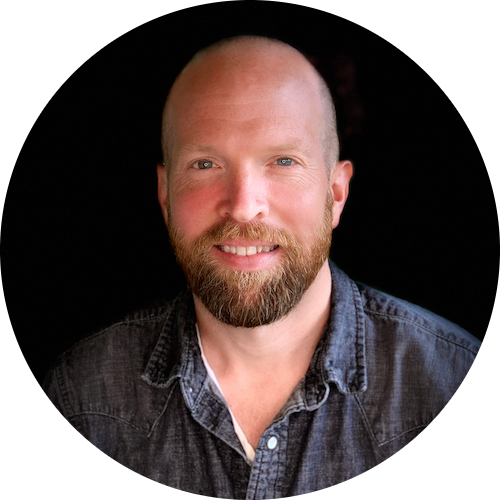Hector Norzagaray wasn’t born a coder. Self-described as a “free soul,” Hector worked in accounting and finance for most of his life before moving on to manage a coworking space in Seattle. When he wasn’t working, he spent his free time volunteering for small companies and nonprofit organizations, translating their websites into Spanish. As a native speaker, the task should have been simple. But the work proved harder than expected. “I was breaking everything because I didn’t know what was code and what was actual content,” Hector says. “So, I started learning HTML and CSS.”
Hector attempted to learn code on his own, but found it was easy to give up whenever the material proved too hard. He realized he needed a formal learning space that would hold him accountable, so he began looking into coding programs. The Code Fellows campus was close to his home, so he stopped by one day to see it for himself. Immediately, Hector felt welcomed by the Code Fellows community.
“It never felt like, ‘We’re going to sell you a product,’” he says. “It was more like, ‘Come and we’re going to help you.’”
A military principle, in code: “One team, one fight”
Hector immediately enrolled, starting with Code 101: a one-day coding workshop. From there, he took Code 102: Intro to Software Development, where he completed all of his Code 201 pre-work—with the help of experienced developers—among his new classmates. “I wanted to make sure I took every step they had that was designed for me to succeed,” says Hector. He then moved on to Code 201, where he learned the foundations of coding.
Throughout his journey at Code Fellows, Hector wasn’t just learning how to code; he was simultaneously “learning how to learn” with the people around him. And even with a cohort of 32 diverse individuals—some with more coding experience than others—Hector never felt like he was in competition with his classmates. While imposter syndrome was something he had struggled with throughout his life, Code Fellows taught Hector how to handle it.
“Imposter syndrome is there, to this day. However, Code Fellows helps you learn how to deal with it. I didn’t even know what imposter syndrome was; I just felt inadequate before. At Code Fellows, I was able to identify it and learn how to deal with it,” Hector says. “People want you to succeed. It’s not very competitive. It’s more about collaboration. We all are going to get better, the better we do together.”
Throughout his journey at Code Fellows, Hector wasn’t just learning how to code; he was learning how to learn.
Many of Hector’s peers had served in the military, and they passed on the lessons they’d learned in their military careers to their civilian classmates. One motto in particular became their shared mentality: “One team, one fight.” They taught him that when you’re on a mission, everyone has to work together. His cohort continued to help and support each other, each person using their strengths to help their classmates overcome their weaknesses. Rather than giving up when the program felt like it was too much, Hector and his cohort leaned on each other and moved forward—together.
“I’ve felt imposter syndrome all my life in other careers. Having classmates constantly telling you: ‘I trust in you. I’ve seen many people go through this and come out on the other side amazing, so you should be fine,’ is really encouraging” says Hector. “One of the things you have to have in order to succeed or finish this is trust. Trust in this process and trust in yourself.”
A community that believes in you
One particularly hard night during Code 201, Hector stayed late in the open coworking area at the Code Fellows campus to work on a coding assignment. Two other Code Fellows students about to graduate from Code 401—the final, language-learning course in the core curriculum—were working there as well, and they could tell he was struggling with his work. They asked him if he was OK, reassured him, and encouraged him to keep going. When Hector went for a walk after their conversation, he came back to a handwritten note they had left for him that read: “Trust me, you’ll be fine. We’ve been there.”
I didn’t even know what imposter syndrome was; I just felt inadequate before. At Code Fellows, I was able to identify it and learn how to deal with it.
“People are going to jump in and help you. It’s a safe community,” Hector says. “It’s not about your educational background, your color, or anything. It’s the background of what you have done.”
A year after graduating, Hector is now putting his Code Fellows education to work as a technical project manager for eventcore in Ballard. And even though he’s graduated, the Code Fellows campus still feels like home—a home he can visit for advice, continuing education and coding knowledge, or encouragement from his peers and advisors. Only now, his former Code Fellows classmates are instructors and teaching assistants for the next generation of coders or working in the industry “making amazing things happen.”
One thing that hasn’t changed for Hector each time he steps foot on the Code Fellows campus? The sense of community: it’s just as welcoming now as it was that first day he visited.

